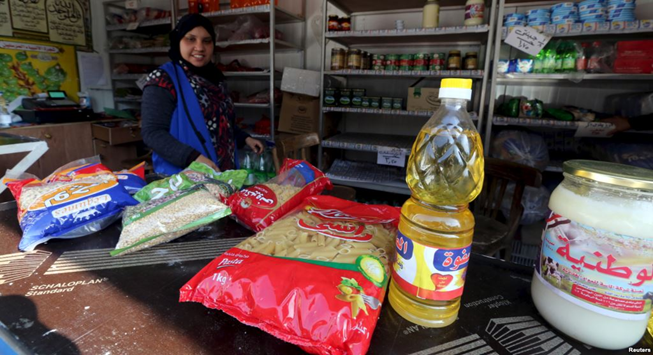
The food subsidies related to low income households have eroded amid the government’s most recent hikes in food prices to match inflation hitting the country’s economy.
The Egyptian Ministry of Supply and Internal Trade has announced new prices for subsidized commodities as of early October 2022, including raising the prices of several essential food and consumer commodities, reported Al-Ahram Gate.
According to Al-Ahram Gate, eight food commodities, essential for Egypt’s lowest-income households witnessed increases ranging from EGP 0.50 to EGP 6, implemented as of early October, which effectively reduced the value of their subsidies.
The International Monetary Fund (IMF), from which the government is seeking a new loan, has long called on the government to reduce its spending on subsidies.
Also, the price of cooking oil increased by EGP 2, lentils by EGP 1, margarine by EGP 6 , sauce by EGP 1.25, cheese (500 grams) by EGP 1, washing powder by EGP 2.5 , soap by EGP 1 , and vinegar by EGP 0.75.
Another of the IMF’s demands is for Egypt to allow greater exchange rate variability, which it is continuing to do by allowing the currency to weaken.
Family budgets across the country are under immense pressure at present, as purchasing power dips in the wake of a currency devaluation and inflation hits its highest rate in four years.
Amid a foreign currency shortage and looming debt repayments, the government also tightened conditions for imports earlier in the year, constricting the supply of goods and sending prices further upward.
While an exceptional cash support package, set to last for six months, was introduced in September to support the low-income households who qualify for a supply card from Egypt’s Supply Ministry, the real value of the government’s subsidy program has declined, while experts anticipate that inflation is still trending up.
Exceptional additional support rolled out in early September saw households entitled to an additional EGP 100.
While in 2017 for example, a person could buy four cartons of processed ghee to cook with, they are now able to purchase just one, while instead of the 15 cans of tomato sauce they could afford in 2017, they can now purchase only eight.
The Supply Ministry increased the cost of goods available through subsidy cards in order to keep the subsidy program in step with commodities inflation, said Heba al-Leithy, a statistics professor at Cairo University and supervisor of the income and expenditure program for the government statistics agency.
“By raising the prices of food commodities, the Supply Ministry is trying to keep the difference between prices on the open market [and prices via subsidy cards] narrow,” Leithy said, according to Mada Masr.
Dr. Heba al-Leithy also noted that the government fears a wide margin could fuel a black market whereby goods available via the subsidy program are resold at marked up prices.
But the government needs to do better than providing temporary cash support, and ensure the supply cards’ purchasing power is adjusted in step with inflation.
Inflation is also expected to continue. On Saturday, for example, a six-month export ban expired, meaning that pasta, flour and oils can now be sold outside the country again.
The ban’s removal and its effect on the supply of goods as traders turn to foreign buyers is anticipated to lead to price hikes in the local market.
Under the foreign currency shortage pressure, the government is negotiating with external partners, many of whom are pushing for further devaluation of the Egyptian pound, which consequently further diminishes the population’s purchasing power.



